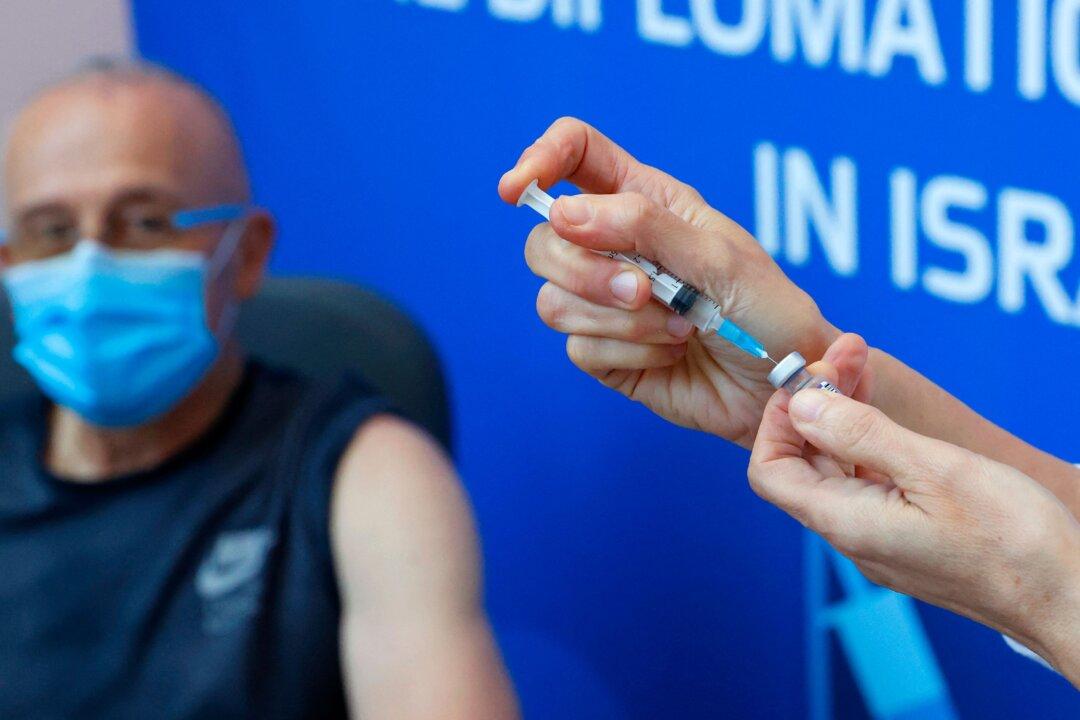An expert hired by Israel’s government to help analyze COVID-19 vaccine adverse event reports warned officials in a closed-door meeting to carefully present the data to the public because of litigation concerns, according to leaked video of the meeting.
Dr. Mati Berkovitch, the expert, said that the phenomenon of rechallenge found by the team turned causal links between the events and Pfizer’s vaccine “from possible to definitive,” according to the video, which was reviewed by The Epoch Times.







